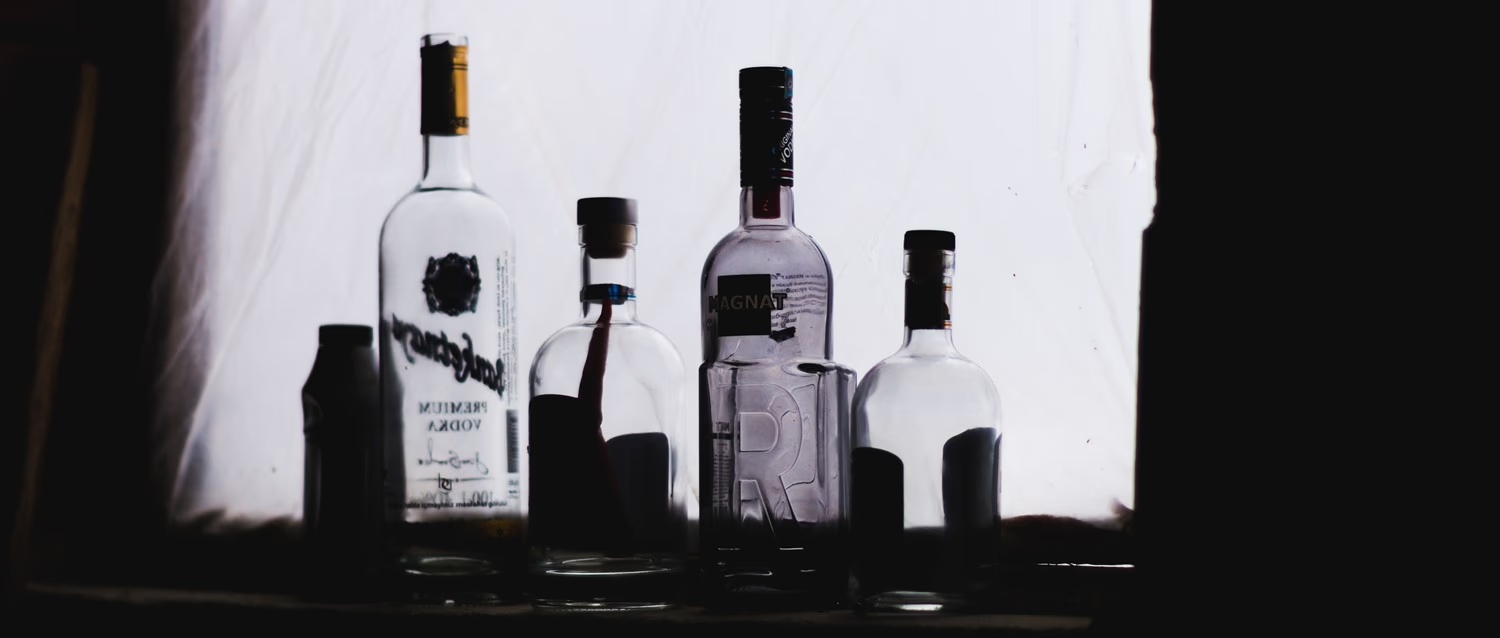
The warning signs of a drinking problem
Peer reviewed by Dr Sarah Jarvis MBE, FRCGPLast updated by Ross DaviesLast updated 14 Jan 2019
This month, thousands of Britons will have a month off the booze in the name of Dry January. For some, however, this time of the year raises deeper self-analysis and the big question - do you have a drinking problem?
In this article:
In the wee small hours of January 1 2013, at a New Year's Eve house party, Tim Hampton* took his last drink.
Like the majority of his friends, he had chosen to take part in 'Dry January', the post-seasonal purge of alcohol thousands of UK adults subscribe to each year, and which has almost become as much of a tradition as Christmas itself.
However, the motivation behind Hampton's resolve to curtail his drinking was much more serious than that of his peers. It wasn't that the festive period had seen him imbibe more than usual; it had culminated in the realisation that he could count on one hand the number of days over the previous year he had not had a drink. Christmas didn't come into it.
Hampton needed to make a change - not just for the month ahead, but his life ahead. Dry January wouldn't be enough, as it would only provide him with the legitimacy to continue drinking - perhaps even harder than before - on February 1.
It just so happened to coincide with that time of the year when resolutions are made in earnest.
"I've never done New Year's resolutions, or anything like that," he explains. "I just remember putting down that drink - I remember clearly, it was a rum and coke - and feeling neither happy nor sad. Just numb. It was for Dry January, but I knew, deep down, that drinking had got a hold of me. Enough was enough."
Continue reading below
The formation of habit
Hampton can trace back his drinking habit - and reasons behind it - with great clarity. At university, he had enjoyed himself, "like most of my friends", but was able to stop with ease during revision periods and exams. Not long after graduating, a dream job beckoned in London at a reputable advertising company.
At first, the young professional put his drinking down to harmless carousing ("I was a young guy in a big city"). When a promotion soon followed, to the role of account manager, it brought with it new responsibilities. Long hours ensued, coupled with unprecedented levels of stress and anxiety. Nothing wrong with blowing off a little steam went the reasoning.
"That’s when it really became a problem, I think," he says. "I knew at the end of the day, I could go to the pub, or go home, and have a couple of glasses of wine to help me relax. I started looking forward to it. Then it became a nightly thing, and the glasses became bigger, until I was on to a bottle a night. Alcohol was a crutch, but at the time I thought nothing of it."
Like many in his position, Hampton didn't consider himself to be an alcoholic. He felt no compulsion to drink during the day and there was little to suggest that it had impacted on his personal relationships or performance at work - two promotions in the space of two years testified to quite the contrary.
Patient picks for Alcohol advice
Signs
However, using alcohol to take the edge off of a hard day in the office - especially when every day is a hard day - could be an indication of dependence, says Dr Fiona Sim, medical advisor for Drinkaware.
"If you find it difficult to enjoy yourself or relax without having a drink, it's possible you've become dependent on alcohol," she says.
"It might be surprising to hear that you don't always have to be drinking to extreme levels to become dependent on alcohol. In fact, most people who are drinking at hazardous or harmful levels have no idea they are doing so."
According to NHS estimates, just under one in 10 men, and one in 20 women in the UK, display signs of alcohol dependence - sometimes labelled alcoholism. In its simplest terms, alcohol dependency means people feel they are unable to function without it. Was this the case for Hampton?
"It’s tough to say, because I wouldn't touch it during the day, which would suggest that I valued my job more than having a drink," he says. "But in terms of relaxation, it became an important part of my life. I would still see friends, but it'd have to be over a few drinks. I'd also drink alone, which I now see was a big red flag."
Like most problem drinkers, Hampton gave short shrift to the Chief Medical Officers' alcohol guidelines, which advise that men and women should consume no more than 14 units a week - the equivalent of six standard glasses of wine or six pints of regular beer - spread over several days and with at least a couple of alcohol-free days a week.
Instead, the warning signs to which he finally paid heed in the early hours of 2013 were that his tolerance for alcohol had increased to an alarming level - meaning he had to drink more just to touch the anxiety or stress he was looking to remedy.
"I remember at the party someone actually commending me for having drunk a bottle of wine to myself and still seeming entirely sober," he says. "I wouldn't say it was an epiphany, or anything like that, but I just realised that if I were to continue to drinking to make me feel good, I would have to keep dosing up. I was in trouble."
Continue reading below
Making the change
Hampton chose to cut out alcohol completely - and on his own ("I went to bed for a couple of days and decided I didn't want it in my life anymore"). Others, as advised by Drinkaware, may choose first to see if they can cut back their alcohol intake so as to have several drink-free days a week.
Drinkaware also has an app, able to allow people to see how much they drink – particularly useful given how hard it can be to track units.
However, the best port of call for those who fear they have a drinking problem remains their GP, who can make a referral to local alcohol services.
For many of us, Dry January throws into sharp relief the benefits of moderation or abstinence - clear-headedness, more energy, better skin, not to mention a healthier bank balance. However, it is often done under the erroneous understanding that the body is in need of a 'detox'. In fact, our organs, including the liver, detox us on a daily basis.
For those drinking too much, such as in the case of Hampton, it might help to prompt the recognition of a deeper, underlying problem, to be acted upon immediately.
*Names have been changed.
Article History
The information on this page is written and peer reviewed by qualified clinicians.
14 Jan 2019 | Latest version

Feeling unwell?
Assess your symptoms online for free

